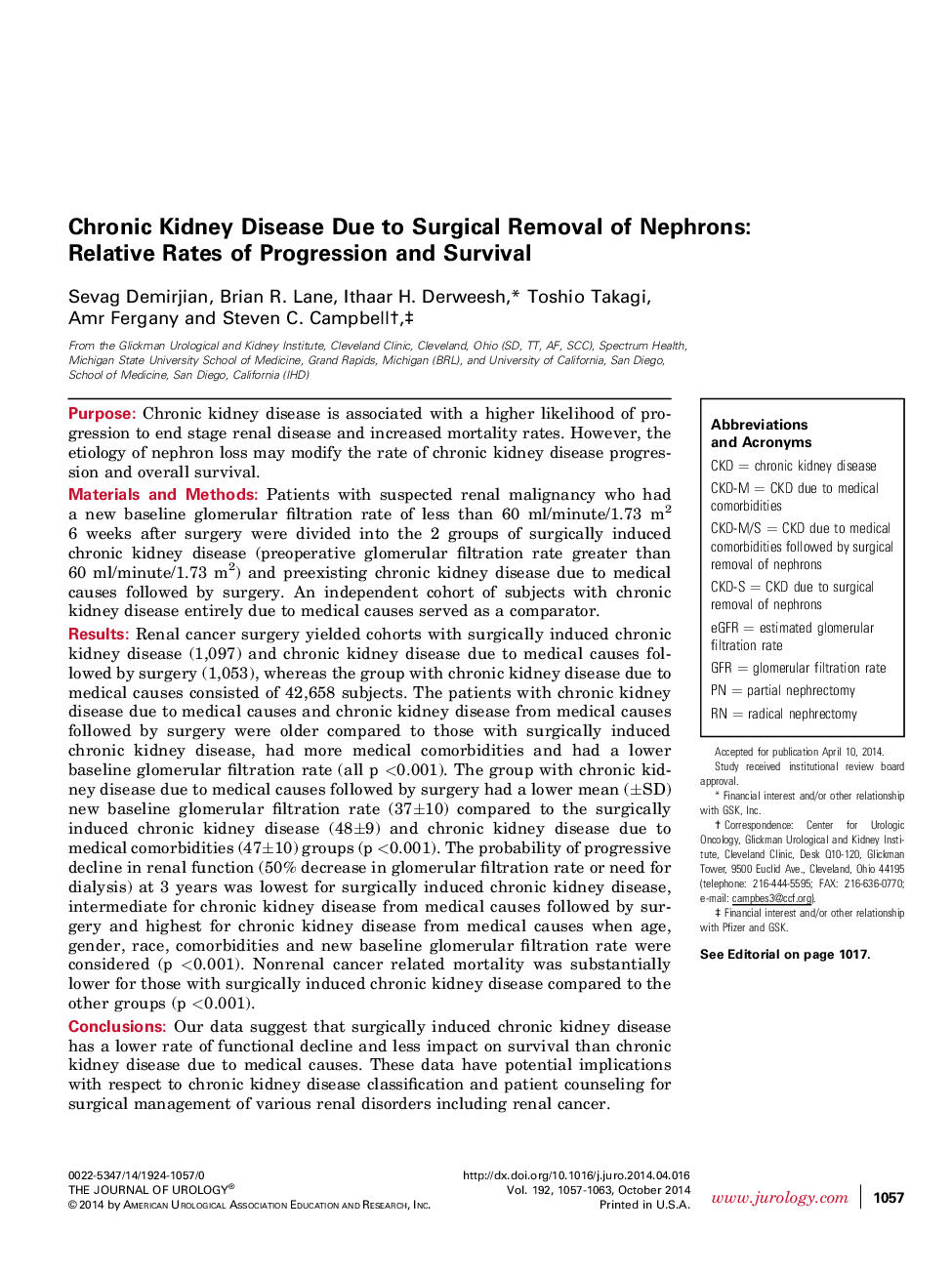| Article ID | Journal | Published Year | Pages | File Type |
|---|---|---|---|---|
| 3860064 | The Journal of Urology | 2014 | 7 Pages |
PurposeChronic kidney disease is associated with a higher likelihood of progression to end stage renal disease and increased mortality rates. However, the etiology of nephron loss may modify the rate of chronic kidney disease progression and overall survival.Materials and MethodsPatients with suspected renal malignancy who had a new baseline glomerular filtration rate of less than 60 ml/minute/1.73 m2 6 weeks after surgery were divided into the 2 groups of surgically induced chronic kidney disease (preoperative glomerular filtration rate greater than 60 ml/minute/1.73 m2) and preexisting chronic kidney disease due to medical causes followed by surgery. An independent cohort of subjects with chronic kidney disease entirely due to medical causes served as a comparator.ResultsRenal cancer surgery yielded cohorts with surgically induced chronic kidney disease (1,097) and chronic kidney disease due to medical causes followed by surgery (1,053), whereas the group with chronic kidney disease due to medical causes consisted of 42,658 subjects. The patients with chronic kidney disease due to medical causes and chronic kidney disease from medical causes followed by surgery were older compared to those with surgically induced chronic kidney disease, had more medical comorbidities and had a lower baseline glomerular filtration rate (all p <0.001). The group with chronic kidney disease due to medical causes followed by surgery had a lower mean (±SD) new baseline glomerular filtration rate (37±10) compared to the surgically induced chronic kidney disease (48±9) and chronic kidney disease due to medical comorbidities (47±10) groups (p <0.001). The probability of progressive decline in renal function (50% decrease in glomerular filtration rate or need for dialysis) at 3 years was lowest for surgically induced chronic kidney disease, intermediate for chronic kidney disease from medical causes followed by surgery and highest for chronic kidney disease from medical causes when age, gender, race, comorbidities and new baseline glomerular filtration rate were considered (p <0.001). Nonrenal cancer related mortality was substantially lower for those with surgically induced chronic kidney disease compared to the other groups (p <0.001).ConclusionsOur data suggest that surgically induced chronic kidney disease has a lower rate of functional decline and less impact on survival than chronic kidney disease due to medical causes. These data have potential implications with respect to chronic kidney disease classification and patient counseling for surgical management of various renal disorders including renal cancer.
